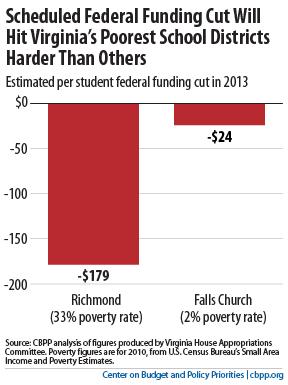Educators in Philadelphia and nationwide are raising urgent concerns over potential federal budget cuts that they warn could severely impact children’s education and well-being. As proposed reductions loom, teachers, administrators, and advocacy groups are sounding the alarm on the risks these cuts pose to critical programs supporting students’ academic achievement and social development. The growing outcry highlights fears that slashing federal funding would undermine efforts to close achievement gaps and provide resources for vulnerable populations, prompting calls for immediate action to safeguard educational investments.
Federal Funding Cuts Threaten Essential Educational Programs in Philadelphia Schools
Educators in Philadelphia are raising urgent concerns as potential federal budget reductions threaten to dismantle critical programs that many students depend on. Cuts to funding for after-school initiatives, special education services, and literacy programs could exacerbate existing disparities in the education system, particularly impacting under-resourced neighborhoods. Teachers and administrators emphasize that these programs are not extras; they are foundational elements that support academic achievement and social-emotional development for thousands of children.
Key programs at risk include:
- After-school tutoring and mentoring
- Early intervention for students with learning disabilities
- Support for English language learners
- Nutrition and mental health services within schools
| Program | Annual Funding | Students Served |
|---|---|---|
| After-School Tutoring | $4.8 million | 5,200 |
| Special Education Services | $7.3 million | 3,400 |
| English Language Learners Support | $2.5 million | 1,800 |
| School-Based Mental Health | $3.6 million | 4,000 |
With these cuts looming, educators warn that schools could see increased dropout rates, lower test scores, and greater challenges in meeting state and federal education standards. Community leaders and advocacy groups are mobilizing to urge lawmakers to reconsider the reductions, highlighting the long-term societal costs of undermining public education. Philadelphia’s schools stand at a critical crossroads, where the preservation of federal support could determine future opportunities for its youngest and most vulnerable residents.
Educators Warn of Increased Inequity and Reduced Support for Vulnerable Students
Educators across Philadelphia and beyond are raising urgent concerns that anticipated federal budget cuts could severely undermine educational equity, disproportionately impacting vulnerable student populations. Schools that rely heavily on federal funding to provide essential services such as special education, free or reduced-price meals, and mental health support may face daunting shortfalls. Without sufficient resources, the gap between advantaged students and those facing socioeconomic challenges risks widening further, jeopardizing efforts to create an inclusive and supportive learning environment.
Teachers and administrators emphasize the critical role these federal programs play in leveling the playing field. They point to multiple consequences of reduced support, including:
- Decreased access to counseling and behavioral health services, which are vital for at-risk youth navigating trauma and stress.
- Scaling back of after-school and enrichment programs, which provide safe spaces and additional learning opportunities for students from low-income families.
- Limited availability of specialized instruction for students with disabilities, compromising their academic progress and social development.
| Program | Potential Funding Cut | Impact on Students |
|---|---|---|
| Title I Grants | 15% | Reduced resources for low-income students |
| IDEA (Special Education) | 12% | Fewer support personnel and services |
| School Lunch Programs | 10% | Decreased access to meals for food-insecure children |
Educators are calling on policymakers to reconsider cuts that could unravel critical safety nets, warning that the long-term costs of neglecting vulnerable students far outweigh short-term budgetary savings.
Community Leaders Call for Advocacy and Strategic Action to Safeguard School Budgets
Educators and community leaders in Philadelphia and nationwide are uniting to voice urgent concerns over proposed federal budget cuts that threaten to destabilize critical funding for schools. These leaders emphasize that reductions in financial support would directly impact classroom resources, extracurricular programs, and support services that are essential for student success, particularly in under-resourced districts. The potential shortfall could exacerbate inequality, limiting access to quality education for the most vulnerable children.
In response, advocates are outlining clear strategies to protect education budgets, focusing on:
- Mobilizing parents and local stakeholders to engage in public comment periods and town halls;
- Lobbying elected officials to prioritize education funding in federal appropriations;
- Partnering with nonprofit organizations to raise awareness and provide supplementary support services;
- Employing data-driven campaigns that highlight the tangible effects of cuts on student outcomes and community well-being.
| Impact Area | Potential Consequences |
|---|---|
| Classroom Supplies | Reduced materials, outdated technology |
| Support Services | Fewer counselors and aides available |
| Extracurricular Programs | Cuts to arts, sports, and enrichment activities |
Proposed Policy Solutions Emphasize Protecting Funding and Prioritizing Student Needs
Amid growing concerns about federal budget reductions, policymakers and education advocates are rallying to safeguard critical funding streams that support public schools. The call to action revolves around preserving investments that address the diverse needs of students, particularly those from marginalized communities. Emphasis is placed on maintaining resources that enable schools to provide essential programs, including mental health services, special education, and after-school initiatives. Advocates argue that these supports are indispensable to fostering equitable learning environments and helping students overcome barriers to academic success.
Proposed strategies include targeted legislative measures to ensure that cuts do not disproportionately affect high-poverty districts or bilingual education efforts. Policymakers also suggest enhancing accountability by linking federal funds directly to demonstrated outcomes in student well-being and achievement. Key areas prioritized by experts include:
- Increased funding stability to avoid abrupt disruptions in school programming.
- Focused support for vulnerable populations, including students with disabilities and immigrant youth.
- Investment in professional development to equip educators with tools to address evolving student needs.
| Policy Focus | Intended Impact | Current Status |
|---|---|---|
| Funding Protection | Prevent budget cuts from reducing essential programs | Under debate in Congress |
| Equity Prioritization | Support schools serving disadvantaged communities | Included in several proposals |
| Outcome Measurement | Link funding to educational and social success metrics | Policy development phase |
Wrapping Up
As discussions over federal education funding continue, voices from Philadelphia and nationwide underscore the urgent need to protect resources that directly impact students’ learning environments. Educators warn that proposed cuts could undermine progress and widen existing inequities, emphasizing that investment in education is crucial for the nation’s future. With lawmakers poised to make pivotal decisions, the stakes remain high for schools, students, and communities striving to recover and thrive amid ongoing challenges.








